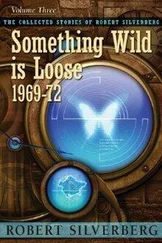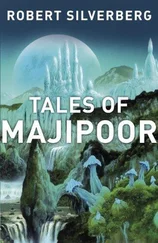Robert Silverberg - Born with the Dead
Здесь есть возможность читать онлайн «Robert Silverberg - Born with the Dead» весь текст электронной книги совершенно бесплатно (целиком полную версию без сокращений). В некоторых случаях можно слушать аудио, скачать через торрент в формате fb2 и присутствует краткое содержание. Год выпуска: 2009, ISBN: 2009, Издательство: Subterranean Press, Жанр: Фантастика и фэнтези, на английском языке. Описание произведения, (предисловие) а так же отзывы посетителей доступны на портале библиотеки ЛибКат.
- Название:Born with the Dead
- Автор:
- Издательство:Subterranean Press
- Жанр:
- Год:2009
- ISBN:978-1-59606-212-2
- Рейтинг книги:5 / 5. Голосов: 1
-
Избранное:Добавить в избранное
- Отзывы:
-
Ваша оценка:
- 100
- 1
- 2
- 3
- 4
- 5
Born with the Dead: краткое содержание, описание и аннотация
Предлагаем к чтению аннотацию, описание, краткое содержание или предисловие (зависит от того, что написал сам автор книги «Born with the Dead»). Если вы не нашли необходимую информацию о книге — напишите в комментариях, мы постараемся отыскать её.
Born with the Dead — читать онлайн бесплатно полную книгу (весь текст) целиком
Ниже представлен текст книги, разбитый по страницам. Система сохранения места последней прочитанной страницы, позволяет с удобством читать онлайн бесплатно книгу «Born with the Dead», без необходимости каждый раз заново искать на чём Вы остановились. Поставьте закладку, и сможете в любой момент перейти на страницу, на которой закончили чтение.
Интервал:
Закладка:
Sybille trembled. “If anything goes wrong—”
“I hear the sirens now,” Zacharias said.
From his desk at the airport Daud Mahmoud Barwani watched the bulky refrigerated coffin being loaded by grunting porters aboard the morning plane for Dar. And then, and then, and then? They would ship the dead man to the far side of the world, to America, and breathe new life into him, and he would go once more among men. Barwani shook his head. These people! The man who was alive is now dead, and these dead ones, who knows what they are? Who knows? Best that the dead remain dead, as was intended in the time of first things. Who could have foreseen a day when the dead returned from the grave? Not I. And who can foresee what we will all become, a hundred years from now? Not I. Not I. A hundred years from now I will sleep, Barwani thought. I will sleep, and it will not matter to me at all what sort of creatures walk the earth.
Nine
We die with the dying:
See, they depart, and we go with them.
We are born with the dead:
See, they return, and bring us with them.
On the day of his awakening he saw no one except the attendants at the rekindling house, who bathed him and fed him and helped him to walk slowly around his room. They said nothing to him, nor he to them; words seemed irrelevant. He felt strange in his skin, too snugly contained, as though all his life he had worn ill-fitting clothes and now had for the first time encountered a competent tailor. The images that his eyes brought him were sharp, unnaturally clear, and faintly haloed by prismatic colors, an effect that imperceptibly vanished as the day passed. On the second day he was visited by the San Diego Guidefather, not at all the formidable patriarch he had imagined, but rather a cool, efficient executive, about fifty years old, who greeted him cordially and told him briefly of the disciplines and routines he must master before he could leave the Cold Town. “What month is this?” Klein asked, and Guidefather told him it was June, the seventeenth of June, 1993. He had slept four weeks.
Now it is the morning of the third day after his awakening, and he has guests: Sybille, Nerita, Zacharias, Mortimer, Gracchus. They file into his room and stand in an arc at the foot of his bed, radiant in the glow of light that pierces the narrow windows. Like demigods, like angels, glittering with a dazzling inward brilliance, and now he is of their company. Formally they embrace him, first Gracchus, then Nerita, then Mortimer. Zacharias advances next to his bedside, Zacharias who sent him into death, and he smiles at Klein and Klein returns the smile, and they embrace. Then it is Sybille’s turn: she slips her hand between his, he draws her close, her lips brush his cheek, his touch hers, his arm encircles her shoulders.
“Hello,” she whispers.
“Hello,” he says.
They ask him how he feels, how quickly his strength is returning, whether he has been out of bed yet, how soon he will commence his drying-off. The style of their conversation is the oblique, elliptical style favored by the deads, but not nearly so clipped and cryptic as the way of speech they normally would use among themselves; they are favoring him, leading him inch by inch into their customs. Within five minutes he thinks he is getting the knack.
He says, using their verbal shorthand, “I must have been a great burden to you.”
“You were, you were,” Zacharias agrees. “But all that is done with now.”
“We forgive you,” Mortimer says.
“We welcome you among us,” declares Sybille.
They talk about their plans for the months ahead. Sybille is nearly finished with her work on Zanzibar; she will retreat to Zion Cold Town for the summer months to write her thesis. Mortimer and Nerita are off to Mexico to tour the ancient temples and pyramids; Zacharias is going to Ohio, to his beloved mounds. In the autumn they will reassemble at Zion and plan the winter’s amusement: a tour of Egypt, perhaps, or Peru, the heights of Machu Picchu. Ruins, archeological sites, delight them; in the places where death has been busiest, their joy is most intense. They are flushed, excited, verbose—virtually chattering, now. Away we will go, to Zimbabwe, to Palenque, to Angkor, to Knossos, to Uxmal, to Nineveh, to Mohenjo-daro. And as they go on and on, talking with hands and eyes and smiles and even words, even words, torrents of words, they blur and become unreal to him, they are mere dancing puppets perking about a badly painted stage, they are droning insects, wasps or bees or mosquitoes, with all their talk of travels and festivals, of Boghazköy and Babylon, of Megiddo and Masada, and he ceases to hear them, he tunes them out, he lies there smiling, eyes glazed, mind adrift. It perplexes him that he has so little interest in them. But then he realizes that it is a mark of his liberation. He is freed of old chains now. Will he join their set? Why should he? Perhaps he will travel with them, perhaps not, as the whim takes him. More likely not. Almost certainly not. He does not need their company. He has his own interests. He will follow Sybille about no longer. He does not need, he does not want, he will not seek. Why should he become one of them, rootless, an amoral wanderer, a ghost made flesh? Why should he embrace the values and customs of these people who had given him to death as dispassionately as they might swat an insect, only because he had bored them, because he had annoyed them? He does not hate them for what they did to him, he feels no resentment that he can identify, he merely chooses to detach himself from them. Let them float on from ruin to ruin, let them pursue death from continent to continent; he will go his own way. Now that he has crossed the interface, he finds that Sybille no longer matters to him.
—Oh, sir, things change—
“We’ll go now,” Sybille says softly.
He nods. He makes no other reply.
“We’ll see you after your drying-off,” Zacharias tells him, and touches him lightly with his knuckles, a farewell gesture used only by the deads.
“See you,” Mortimer says.
“See you,” says Gracchus.
“Soon,” Nerita says.
Never, Klein says, saying it without words, but so they will understand. Never. Never. Never. I will never see any of you. I will never see you, Sybille. The syllables echo through his brain, and the word, never, never, never, rolls over him like the breaking surf, cleansing him, purifying him, healing him. He is free. He is alone.
“Goodbye,” Sybille calls from the hallway.
“Goodbye,” he says.
It was years before he saw her again. But they spent the last days of ’99 together, shooting dodos under the shadow of mighty Kilimanjaro.
Интервал:
Закладка:
Похожие книги на «Born with the Dead»
Представляем Вашему вниманию похожие книги на «Born with the Dead» списком для выбора. Мы отобрали схожую по названию и смыслу литературу в надежде предоставить читателям больше вариантов отыскать новые, интересные, ещё непрочитанные произведения.
Обсуждение, отзывы о книге «Born with the Dead» и просто собственные мнения читателей. Оставьте ваши комментарии, напишите, что Вы думаете о произведении, его смысле или главных героях. Укажите что конкретно понравилось, а что нет, и почему Вы так считаете.












